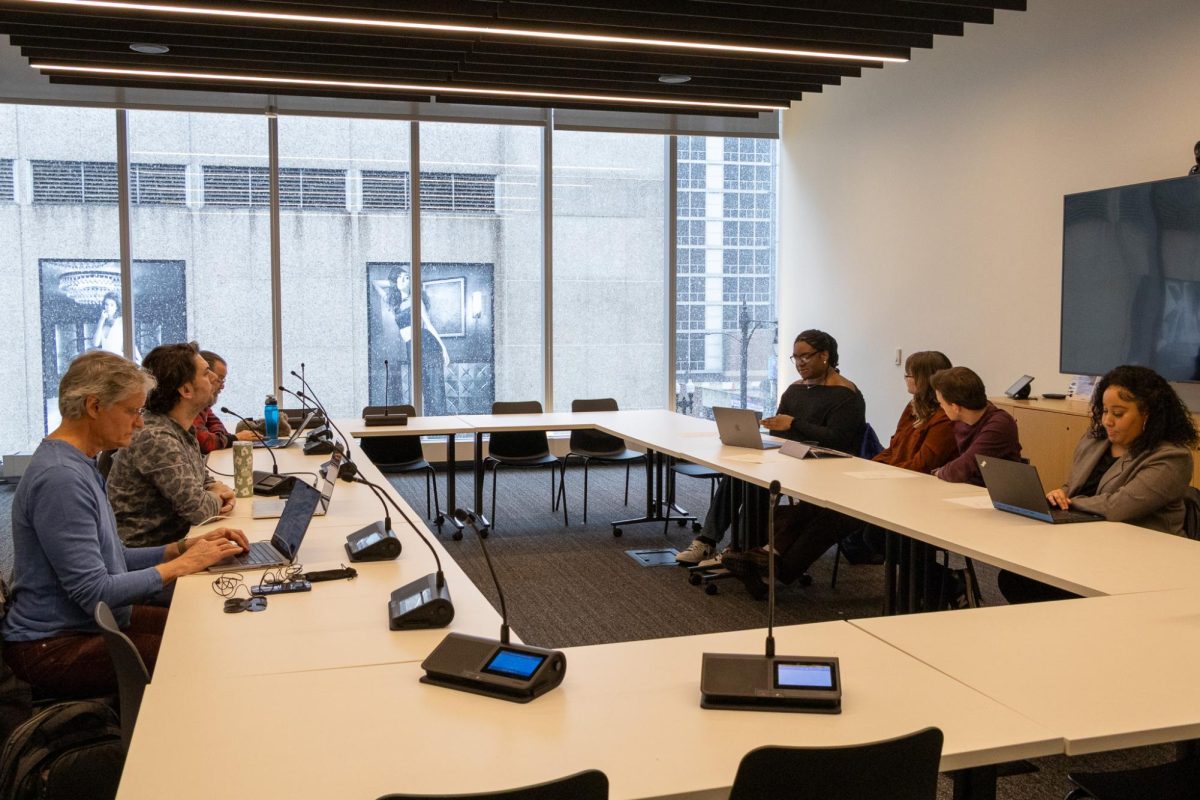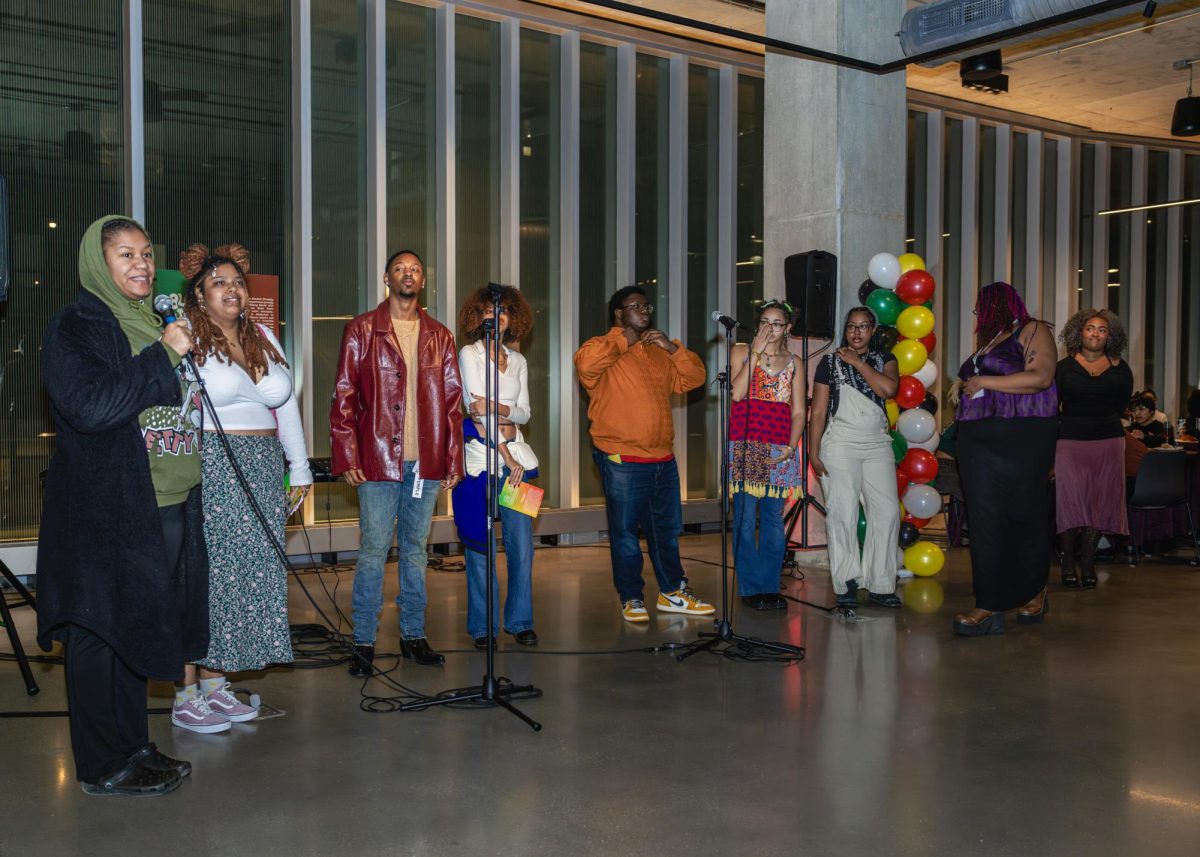Student leaders told members of the Faculty Senate on Friday, March 7 that they are worried about the Trump Administration’s attacks on DEI.
SGA President Jenna Davis, a junior fine arts major, said possible cuts to DEI efforts is scary to students, especially first-generation students and those who are paying for their education with federal student loans, work study and Pell grants.
“The school is taking action to combat that or improve that, which I think is comforting,” Davis said.
But students also are worried more generally about the changes the college is implementing after a major overhaul of programs that the Board of Trustees approved last fall. This January, the college laid off 23 full-time faculty members, as the Chronicle previously reported.
Many students “feel the college is focused on just the changes as a whole without ensuring students of a better understanding of what is actually happening,” said I’Ja Wright, student representative to the Board of Trustees and senior marketing major. “I would love for just a better communication channel to our students about those things, just to have a clear understanding.”
This was the first time members of the Student Government Association executive board were invited to a Faculty Senate meeting to talk about their concerns on campus.
“We invited them as members of SGA, but it’s more about inviting student voices,” said Faculty Senate President Rojhat Avsar, an associate professor in the School of Communication and Culture. “We thought they may have a better understanding of where students are at.”
In a “dear colleague” letter from the Department of Education’s Office of Civil Rights sent on Friday, Feb. 14, Acting Assistant Secretary Craig Trainor said colleges must cease using “race preferences and stereotypes” as a factor in their admissions, hiring, promotion, compensation, scholarships, prizes, administrative support, sanctions and discipline.
On March 1, the department followed up with the release of frequently asked questions about the letter.
Senior Vice President and Provost Marcella David also addressed the Faculty Senate about the college’s response to the Trump Administration’s policies targeting higher education.
“We remain confident in our mission and the importance that we place in having diverse perspectives, having an inclusive environment, treating people equitably is what we do, and that it’s important to what we do,” David said.
The college will hold a DEI Town Hall for all members of the campus community on Thursday, March 13 from 4 to 5:30 p.m. in the Student Center.
Wright relayed to the senate some of the concerns raised by students during the weekly Student Affairs Committee meetings.
According to their committee’s monthly report, students still feel “uninformed and anxious” about the college’s academic restructuring and are worried about their trajectory.
SGA Vice President of Finance Dave Palazzolo also emphasized that while there is a lack of communication with the students, they acknowledge that the college is in the process of implementing the new student information system.
Palazzolo, a junior film and television major, said that the students are anticipating the changes in the course offerings next semester, the process for registration and how the new system will affect these.
“I think the biggest concern that we’ve heard brought up recently is just about the transition period of when we go to register, in just another month or two here, if we’re using a new system that we’re not familiar with,” Palazzolo said.
He added that there will be confusion and anxiety about registering because there is “an additional layer of something new to learn there.”
Mar Wynn, SGA vice president of communications, discussed the request for mentorship opportunities where incoming students can connect with current students to help them adjust to college life.
“This has been made apparent, and it would even be more beneficial if students were paired with someone currently in their major, just for that inside knowledge and resources,” said Wynn, a senior film and television major. “That way, it can alleviate some of that information falling through the cracks.”
After presenting the students’ concerns, the floor opened for attendees to ask questions to the student representatives.
Brian Marth, associate provost for academic services, asked about students’ preferred ways of receiving communications from the college.
Wright responded that students appreciate having posters, knowing where to find them and having important information that is easy to digest.
“A lot of the students talk about emails that come from admin at the college, and what we do a lot as e-Board, we take a look at those emails, and we find a way to present it to our students in a way that they can understand better,” Wright said.
Davis also added that word of mouth is really important, even just having faculty break down information from newsletters before class because “students are better at hearing things than reading things in their email.”
Davis said it was important for them to be there because students don’t always get to be in a space like the senate meeting. She hopes the Faculty Senate heard their concerns about communication and transparency loud and clear.
“I think this is already like a good step towards that, inviting students, and I hope they move forward in some capacity of restructuring how town halls work, or the mentorship program, and of course, have DEI be part of like one of their main focuses in all of that,” Davis said.
Copy edited by Patience Hurston








